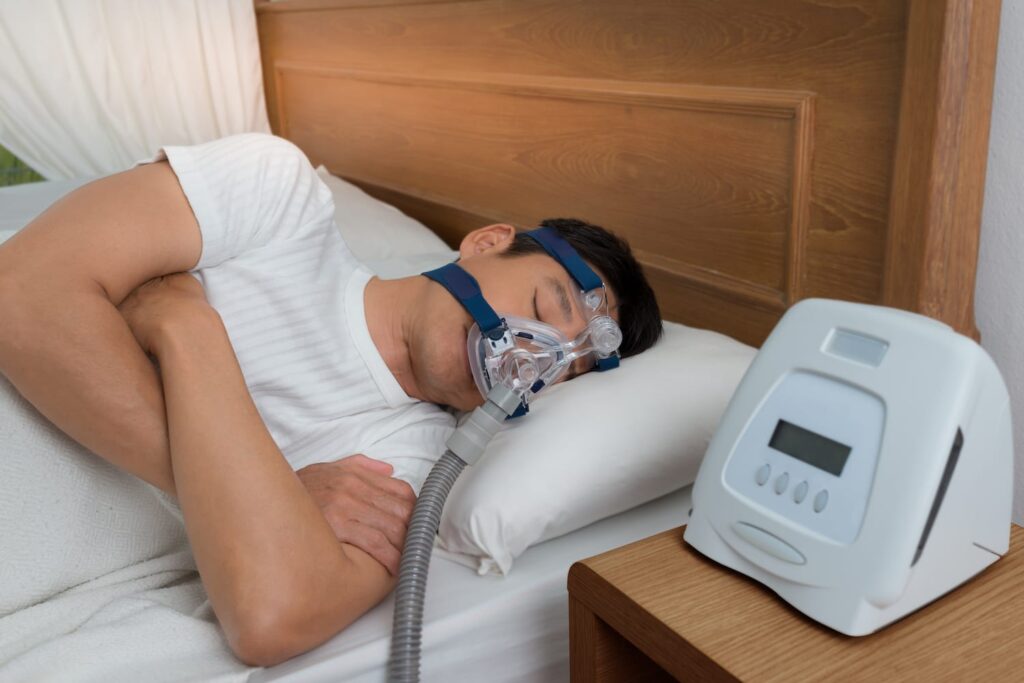Sleep apnea is a serious sleep disorder that affects millions of individuals worldwide. Characterised by repeated interruptions in breathing during sleep, it can lead to a range of health issues, including cardiovascular problems, daytime fatigue, and impaired cognitive function. For those suspecting they may have sleep apnea, seeking a reliable and local testing option is crucial. This guide aims to provide comprehensive insights into finding a sleep apnea test near you, ensuring that you receive the appropriate diagnosis and treatment.
Understanding Sleep Apnea
Before diving into the logistics of testing, it’s essential to understand what sleep apnea is and its various forms. The two most common types are obstructive sleep apnea (OSA) and central sleep apnea (CSA). OSA occurs when the throat muscles intermittently relax and block the airway during sleep, while CSA is a result of the brain failing to send proper signals to the muscles that control breathing.
Finding a reliable sleep apnea test near me is a crucial step towards diagnosing and managing this potentially serious condition. By understanding the types of tests available, consulting with healthcare professionals, and preparing adequately, you can ensure a smooth testing process. Remember, early diagnosis and treatment can significantly improve your quality of life and overall health. Don’t hesitate to take the first step towards better sleep and health.
Symptoms of sleep apnea can vary but often include loud snoring, gasping for air during sleep, excessive daytime sleepiness, and difficulty concentrating. If you identify with these symptoms, it is imperative to seek a professional evaluation.

Why Testing is Essential
Testing for sleep apnea is crucial for several reasons. Firstly, it allows for an accurate diagnosis, which is vital for effective treatment. Secondly, untreated sleep apnea can lead to severe health complications, including hypertension, heart disease, and diabetes. Finally, obtaining a diagnosis can significantly improve your quality of life by addressing the root cause of your sleep disturbances.
Read more at: CPAP Sleep Study What to Expect and How It Helps Sleep Apnea Patients
Types of Sleep Apnea Tests
There are primarily two types of tests used to diagnose sleep apnea: in-lab polysomnography and home sleep apnea testing. Understanding the differences between these tests can help you make an informed decision about which option is best for you.
In-Lab Polysomnography
This comprehensive test is conducted in a sleep clinic or hospital. It involves monitoring various body functions, including brain activity, eye movement, heart rate, and breathing patterns while you sleep. This method is often considered the gold standard for diagnosing sleep disorders.
During the test, sensors are placed on your body to collect data throughout the night. A trained sleep technician will monitor your sleep patterns and can provide immediate assistance if necessary. While this method is thorough, it can be more expensive and may require a referral from a healthcare provider.
Home Sleep Apnea Testing
Home sleep apnea testing is a more convenient option for many individuals. It typically involves using a portable device that you can take home to monitor your breathing patterns, oxygen levels, and heart rate while you sleep. While this method is less comprehensive than in-lab testing, it can still provide valuable insights and is often more accessible and cost-effective. Find more about accessible on https://www.ultimatemedical.edu/about/accessibility-policy/
However, it is essential to note that home testing may not be suitable for everyone, particularly those with comorbid conditions or complex sleep disorders. Consulting with a healthcare professional can help determine the best approach for your situation.
Finding Local Testing Options
Once you have decided on the type of test you wish to pursue, the next step is to find local and reliable options. Here are some strategies to help you in your search:
Consult Your Primary Care Physician
Your first point of contact should be your primary care physician. They can assess your symptoms, provide a preliminary evaluation, and refer you to a sleep specialist or a sleep centre. This referral can also help ensure that your insurance covers the testing.
Additionally, your physician can provide valuable information about the types of tests available in your area and help you navigate the process of obtaining a diagnosis.
Search Online for Sleep Centres
Utilising online resources can be an effective way to find sleep centres near you. Websites such as the Australian Sleep Association or local health department directories can provide lists of accredited sleep clinics. Look for centres that have certified sleep specialists and positive patient reviews.
When searching online, consider using keywords like “sleep apnea test near me” or “sleep clinic in [your location]” to yield the most relevant results. Ensure that the clinics you consider are accredited by recognised organisations, as this can impact the quality of care you receive.
Read Reviews and Testimonials
Before making a decision, take the time to read reviews and testimonials from previous patients. Websites like Healthgrades or Google Reviews can provide insights into the experiences of others who have undergone testing at specific clinics. Look for feedback regarding the professionalism of the staff, the comfort of the facilities, and the overall quality of care. Click here to find more about quality.
Personal recommendations from friends or family members can also be invaluable. If someone you trust has had a positive experience with a particular clinic, it may be worth considering.
Preparing for Your Sleep Apnea Test
Preparation for a sleep apnea test can vary depending on the type of test you will undergo. Here are some general guidelines to help you prepare effectively:
For In-Lab Testing
- Avoid Stimulants: Refrain from consuming caffeine or nicotine on the day of the test, as these can interfere with your sleep patterns.
- Follow Your Usual Routine: Try to maintain your regular sleep schedule leading up to the test to ensure accurate results.
- Bring Necessary Items: Pack any items you may need for an overnight stay, such as toiletries, comfortable clothing, and any medications you take.
For Home Testing
- Follow Instructions: Carefully read and follow the instructions provided with the home testing device to ensure accurate results.
- Prepare Your Sleep Environment: Make sure your sleeping area is conducive to a good night’s sleep, free from distractions and disturbances.
- Keep a Sleep Diary: Document your sleep patterns leading up to the test, including any symptoms you experience, as this information can be helpful for your healthcare provider.
Interpreting Your Results
After completing your sleep apnea test, the results will be analysed by a sleep specialist. Understanding these results can be crucial for your treatment plan. Sleep studies typically measure the number of apnoeas (pauses in breathing) and hypopnoeas (shallow breathing) per hour of sleep, known as the Apnoea-Hypopnoea Index (AHI).

An AHI of less than 5 is considered normal, while an AHI of 5 to 15 indicates mild sleep apnea, 15 to 30 indicates moderate sleep apnea, and over 30 signifies severe sleep apnea. Based on these results, your healthcare provider will recommend an appropriate treatment plan, which may include lifestyle changes, continuous positive airway pressure (CPAP) therapy, or surgery in severe cases.
